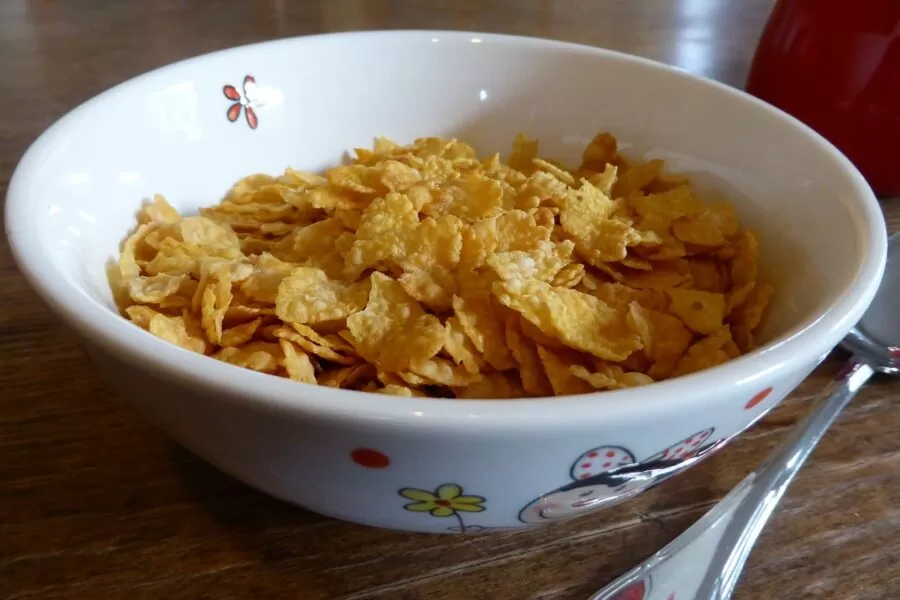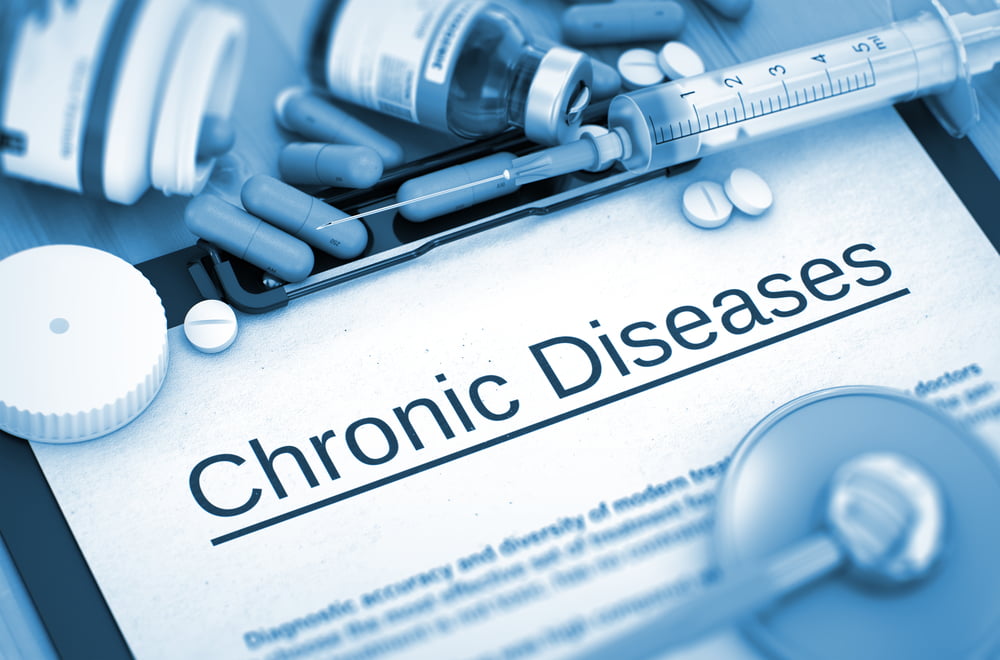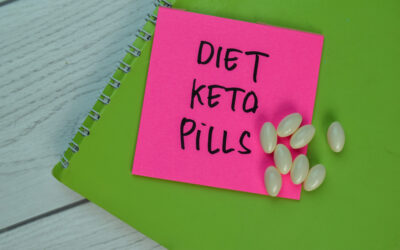What’s the best strategy to avoiding chronic diseases caused by a high-calorie diet? That’s a question that many people are asking these days, as both obesity rates and rates of chronic disease have been on the rise in recent years. Unfortunately, there’s no one answer to the question; what works for some won’t work for others, and it will be different depending on the specific situation of each person involved.
Strategy For Avoiding Chronic Diseases Caused By A High-Calorie Diet.
1. Cut Down Saturated Fats and Sugar.
One of the best ways to avoid diseases caused by a high-calorie diet is to cut down saturated fats and sugar. Saturated fats have been linked with heart disease, obesity, and other chronic illnesses.(1)
Cutting down on sugar will help you feel fuller for longer, which in turn helps you eat less. It’s also worth mentioning that diabetes is a chronic illness caused by a high-calorie diet.

2. Eat Breakfast Every Day.
It’s important to eat breakfast every day, as this meal helps fuel your body and brain for the day ahead. Plus, research has shown that those who skip breakfast are more likely to gain weight and have chronic diseases such as heart disease, diabetes and cancer.(2)

The key is to focus on eating a healthy breakfast with a balance of protein, carbs and fat. A good option is eggs with vegetables or a whole grain cereal topped with fruit or nuts.
3. Eat Plenty of Plant Proteins.
Protein is an important macronutrient for both weight management and overall health. On average, adults need about 20 to 30 grams of protein per day. (This is also the recommended amount for people who are on a low-carb diet.) Some research suggests that diets higher in animal protein can have adverse effects on long-term health.(3)

Conversely, plant proteins may offer certain benefits that animal proteins do not. Plant proteins contain more antioxidants and fibre than animal proteins, which may reduce your risk of developing chronic diseases caused by a high-calorie diet. Consider incorporating healthier options for energy, such as plant-based proteins, into your daily diet to support your overall health and well-being.”
4. Drink Plenty of Water.
Drinking plenty of water is the best strategy for avoiding chronic diseases caused by a high-calorie diet. If you don’t drink enough water, your body will not be able to process all the nutrients it needs which will lead to unhealthy habits like overeating and eating too much junk food.(4)

Drink at least eight glasses of water a day, but you can also drink more if you’re exercising or in hot weather. Drinking water will help your body lose weight and maintain healthy skin and hair!
5. Make Sure You Are Getting Enough Fiber.
One of the best strategies for avoiding chronic diseases caused by a high-calorie diet is to make sure you are getting enough fiber in your diet. Fiber helps keep your digestive system running smoothly, which can help prevent constipation and other digestive disorders.

In addition, it will make you feel full for longer, which can help you avoid overeating and gaining weight. To get more fiber in your diet, try increasing your intake of fruits and vegetables or adding a fiber supplement to your daily routine.(5)
6. Exercise Regularly.
Regular exercise has been shown to be one of the best strategies for avoiding chronic diseases caused by a high-calorie diet. Exercise has numerous benefits, including: it’s free, it’s available to everyone and can be done at any time, and it doesn’t require much equipment.

It also boosts your mood and reduces stress levels.(6) Make sure you’re exercising regularly if you want to avoid chronic diseases caused by a high-calorie diet!
7. Don’t Skip Meals.
Eating smaller meals throughout the day can reduce hunger and help you maintain a healthy weight. Plus, it’s better for your metabolism because it doesn’t give your body any long periods of time without food, which can lead to weight gain. Skipping meals may be tempting as an attempt to cut calories, but in reality it only leads to more cravings later on and ultimately higher calorie intake.(7)
8. Be Active.
If you are looking to avoid chronic diseases caused by a high-calorie diet, it is best to be active. It helps your body maintain a healthy weight and regulate blood sugar levels.(8) It also reduces the risk of developing heart disease and certain cancers. Aim for 30 minutes of moderate physical activity 5 days per week, or 60 minutes of vigorous activity 3 days per week.
9. Drink Milk (Skim Milk, Low Fat Yogurt).
Numerous studies have been conducted on the long-term effects of cola and energy drinks. While these drinks are often marketed as healthier alternatives, in reality they are far from it. Energy drinks often contain high levels of caffeine which can lead to increased blood pressure, insomnia and other mental health problems.(9) Cola is also a major contributor to diabetes, obesity and osteoporosis due to its high sugar content. Studies have shown that milk is actually better for your health than both cola and energy drinks.(10) Milk contains many nutrients such as calcium, vitamin D, protein and potassium which are all essential for a healthy diet.
Bottom Line.
It can be difficult to know which is the best strategy for avoiding chronic diseases caused by a high-calorie diet, but there are some approaches that might help. One approach is to identify triggers and find healthier alternatives. Another approach is to pay attention to what and when you eat, as well as how you feel after eating certain foods. Finally, it can also help to review your dietary habits and make changes where necessary.
+10 Sources
Freaktofit has strict sourcing guidelines and relies on peer-reviewed studies, educational research institutes, and medical organizations. We avoid using tertiary references. You can learn more about how we ensure our content is accurate and up-to-date by reading our editorial policy.
- A healthy approach to dietary fats: understanding the science and taking action to reduce consumer confusion; https://www.ncbi.nlm.nih.gov/pmc/articles/PMC5577766/
- Association between Breakfast Skipping and Body Weight—A Systematic Review and Meta-Analysis of Observational Longitudinal Studies; https://www.ncbi.nlm.nih.gov/pmc/articles/PMC7832891/#:~:text=The%20meta%2Danalyses%20indicated%20an,%2C%20n%20%3D%20two%20studies).
- Adverse Effects Associated with Protein Intake above the Recommended Dietary Allowance for Adults; https://www.ncbi.nlm.nih.gov/pmc/articles/PMC4045293/#:~:text=The%20adverse%20effects%20associated%20with,progression%20of%20coronary%20artery%20disease.
- Water, Hydration and Health; https://www.ncbi.nlm.nih.gov/pmc/articles/PMC2908954/
- The Health Benefits of Dietary Fibre; https://www.ncbi.nlm.nih.gov/pmc/articles/PMC7589116/
- Exercise for Mental Health; https://www.ncbi.nlm.nih.gov/pmc/articles/PMC1470658/
- The Influence of Meal Frequency and Timing on Health in Humans: The Role of Fasting; https://www.ncbi.nlm.nih.gov/pmc/articles/PMC6520689/
- Exercise and Type 2 Diabetes; https://www.ncbi.nlm.nih.gov/pmc/articles/PMC2992225/#:~:text=Aerobic%20exercise%20has%20been%20the,type%202%20diabetes%20(282).
- Energy Drink Consumption: Beneficial and Adverse Health Effects; https://www.ncbi.nlm.nih.gov/pmc/articles/PMC4682602/
- Milk and dairy products: good or bad for human health? An assessment of the totality of scientific evidence; https://www.ncbi.nlm.nih.gov/pmc/articles/PMC5122229/

 Workout
Workout
 Meditation
Meditation


 Stories
Stories


 Podcast
Podcast E-book
E-book











